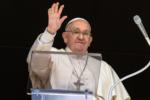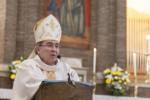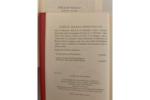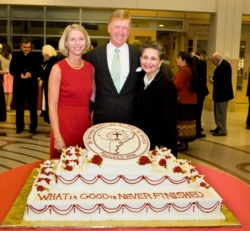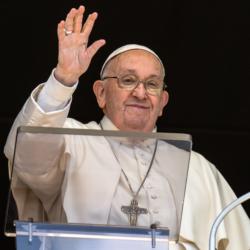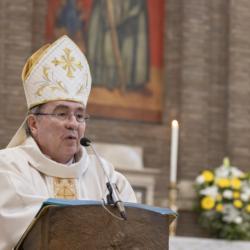Three honored at Cushing Award banquet
Three ordinary people doing extraordinary things were recognized Nov. 2 by The Missionary Society of St. James the Apostle at their annual Cardinal Richard J. Cushing Medal Banquet at Boston College High School.
“The event was our Golden Jubilee as we celebrated 50 years since our founding by Cardinal Cushing,” said Msgr. Finbarr O’Leary, the society’s director.
The dinner was held on the 38th anniversary of the death of Cardinal Cushing. The late archbishop founded and supported the Boston-based society that sends diocesan priests from the United States to Peru, Bolivia and Ecuador during the 26 years of his tenure here.
Hundreds of people gathered to remember the man who served with so much grand distinction and to recognize the medal recipients: Patricia Brett, Kathleen Driscoll and Thomas Martin.
Brett, a former special assistant to Senate President William M. Bulger, was recognized for her years of support for numerous charitable, Church and community causes.
Driscoll, president of the Campaign for Catholic Schools, was recognized for her leadership of the Archdiocese of Boston’s 2010 Initiative aimed at rebuilding and revitalizing Catholic education.
Martin, the president of Cramer Productions in Norwood, was recognized for his leadership of and generosity to community causes. Martin serves on the board of directors of Caritas Christi, the archdiocesan healthcare system, and is the most recent past chairman of the board of Caritas Norwood Hospital. He serves on other boards including the Jimmy Fund, Easter Seals and Westwood’s Xavieran Brothers High School.
Before the dinner, Cardinal Sean P. O’Malley celebrated Mass in the school’s Bulger Auditorium. In his remarks, the cardinal praised the society and its work, and remembered Cardinal Cushing at the Mass, which was celebrated on All Soul’s Day.
The society has sent 330 priests to Latin America since its founding, said the cardinal, who is the chairman of the society’s board. There are 42 priests currently serving in the society’s missions.
Priests serve five-year terms and then have the option of staying for five more years or returning home.
Though begun in Boston, the society has expanded beyond the archdiocese. There are now priests from all over the United States and from other countries, such as New Zealand, Switzerland, Italy and the Philippines, serving in the missions.
“What makes the society unique is that when a religious priest, such as a Dominican or Franciscan, goes someplace, he stays there for 20 years, maybe for the rest of his life,” said Frank Mazzaglia, a newspaper columnist and volunteer with the society.
“When the St. James Society priests start something, they work for five years and get things going and then turn it over to the local bishop,” he said. “Then the priests go out to build someplace more remote.”
“They build more than just churches,” he said. “They build schools, community centers and hospitals. One hospital the society built now delivers 400 babies a month.”
Guests at the dinner viewed an 11-minute documentary produced by Cramer Productions on the history of the society.
“It went a long way in bridging the early days with the here and now,” said Msgr. O’Leary.
Although the society has changed, it continues to embody the idea “Whatever is good is never finished,” he said.
In the beginning, the society was bringing the America model of the Church and was less sensitive to cultural traditions of the people they were serving, he said. “Now, we are better at meeting people where they are.”
In his remarks at the dinner, retired Bishop John P. Boles, who had concelebrated the Mass with the cardinal, said the society has become the gift that keeps on giving.
The experience of serving in the society provides priests with excellent Spanish language skills and awareness of the Hispanic cultures that has been vital to serving the Spanish speaking immigrants in Boston that no one anticipated when the society was founded, the bishop said.

